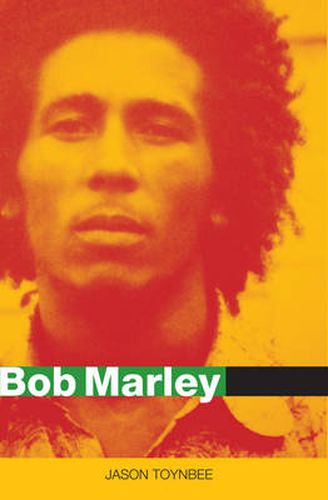Readings Newsletter
Become a Readings Member to make your shopping experience even easier.
Sign in or sign up for free!
You’re not far away from qualifying for FREE standard shipping within Australia
You’ve qualified for FREE standard shipping within Australia
The cart is loading…






Is Bob Marley the only third world superstar? How did he achieve this unique status? In this captivating new study of one of the most influential musicians of the twentieth century, Jason Toynbee sheds new light on issues such as Marley’s contribution as a musician and public intellectual, how he was granted access to the global media system, and what his music means in cultural and political terms. Tracing Marley’s life and work from Jamaica to the world stage, Toynbee suggests that we need to understand Marley first and foremost as a ‘social author’. Trained in the co-operative yet also highly competitive musical laboratory of downtown Kingston, Marley went on to translate reggae into a successful international style. His crowning achievement was to mix postcolonial anger and hope with Jamaican textures and beats to produce the first world music. However the period since his death has been marked by brutal and intensifying inequality in the capitalist world system. There is an urgent need, then, to reconsider the nature of his legacy. Toynbee does this in the concluding chapters, weighing Marley’s impact as advocate of human emancipation against his marginalisation as a ‘Natural Mystic’ and pretext for disengagement from radical politics.
$9.00 standard shipping within Australia
FREE standard shipping within Australia for orders over $100.00
Express & International shipping calculated at checkout
Is Bob Marley the only third world superstar? How did he achieve this unique status? In this captivating new study of one of the most influential musicians of the twentieth century, Jason Toynbee sheds new light on issues such as Marley’s contribution as a musician and public intellectual, how he was granted access to the global media system, and what his music means in cultural and political terms. Tracing Marley’s life and work from Jamaica to the world stage, Toynbee suggests that we need to understand Marley first and foremost as a ‘social author’. Trained in the co-operative yet also highly competitive musical laboratory of downtown Kingston, Marley went on to translate reggae into a successful international style. His crowning achievement was to mix postcolonial anger and hope with Jamaican textures and beats to produce the first world music. However the period since his death has been marked by brutal and intensifying inequality in the capitalist world system. There is an urgent need, then, to reconsider the nature of his legacy. Toynbee does this in the concluding chapters, weighing Marley’s impact as advocate of human emancipation against his marginalisation as a ‘Natural Mystic’ and pretext for disengagement from radical politics.